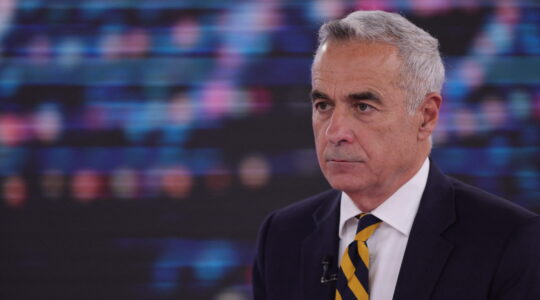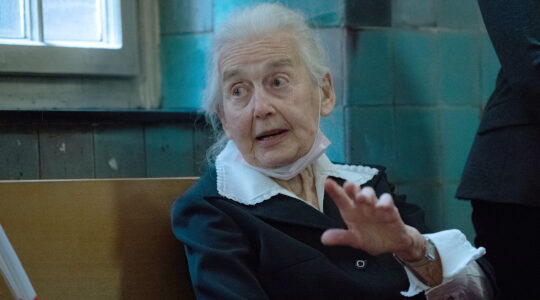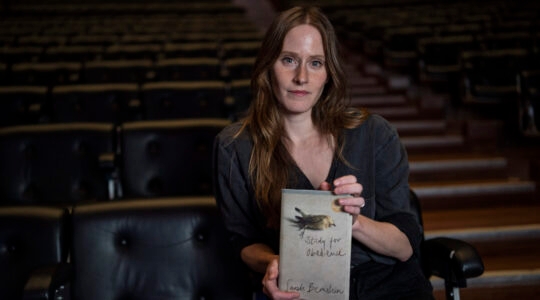TORONTO (JTA) — Alex Iscoe is taking Jewish fund-raising to new heights.
The young Jewish Toronto native hopes to enter the rarefied company of just 230 or so climbers who have scaled the so-called Seven Summits — the highest mountain on each of the seven continents.
He’s doing it partly, as the old mountaineering slogan goes, because it’s there — but also to raise money for UJA-Federation of Greater Toronto.
Iscoe quit his job as a Hong Kong-based leveraged buyout specialist with Goldman Sachs a year ago, just as financial storm clouds were gathering, and he is financing his own adventure.
A single, self-described “28-year-old galavanting male,” Iscoe began last July with a tune-up climb up the 14,400-foot summit of Mount Rainier in Washington state.
He followed that by reaching the summits of Mount Elbrus in Russia (18,500 feet), Mount Aconcagua in Argentina (22,840 feet) and Mount Vinson Massif in Antarctica (16,000 feet), where the temperature dropped to about 40 degrees below 0 without wind chill.
Now the world’s highest peak is looming before him.
“Since I was a teenager, Mount Everest has been a dream,” Iscoe told JTA via satellite telephone from base camp at 17,000 feet on the legendary peak that straddles the Nepal-China border. “I found myself in the fortunate position of having built the time and resources over the past year to be doing other training climbs and preparing for this.
“It’s something I always wanted to do.”
Iscoe said the weather on Everest has been “fairly good” so far. The bigger problem now is oxygen deprivation.
“A low oxygen environment really starts to take its toll on you,” he said from inside his tent.
Iscoe and his team, six other climbers and two guides, are experiencing headaches.
“Sleep becomes very challenging,” he said. You’re “waking up with what essentially amounts to a really bad hangover.”
To acclimatize to the thinner air, the climbers gradually ascend the mountain, then drop back a few thousand feet to a base camp to rest for a week or so.
In the next few days, the team will ascend to 23,500 feet. Iscoe expects the final push to the 29,000-foot summit to take place during the third week of May.
The higher he goes, the more the lack of oxygen and cold will become problematic.
“They combine to form huge problems. As you get higher and there is less oxygen,” Iscoe said, “the fact that it’s colder is multiplied because you’re not getting enough oxygen to keep your body warm, plus the fact that it’s freezing cold and windy. Right now the issue is acclimatizing, but as we move higher it will most certainly be both.”
Iscoe said he got involved with UJA about seven years ago when he and a friend set up a memorial fund for a college buddy killed in a car accident. He also was involved in a campaign to send kids to camp.
“It was a pretty natural fit for me to be working with them again,” he said.
Funds raised through his climbs will go toward a UJA-funded project in the Israeli town of Bat Yam that helps integrate Ethiopian children into Israeli society.
Apart from Everest, still before him are Mount McKinley in Alaska, Mount Kosciuszko in Australia and Mount Kilimanjaro in Africa. He hopes to complete the Seven Summits before the end of this year.
Iscoe said he’s given only “a little bit of thought” to what he will do after the climbs.
“To be honest, my entire focus is on” Everest, he said. “When this mountain is over, the entire focus will be on the next mountain.”

Help ensure Jewish news remains accessible to all. Your donation to the Jewish Telegraphic Agency powers the trusted journalism that has connected Jewish communities worldwide for more than 100 years. With your help, JTA can continue to deliver vital news and insights. Donate today.





